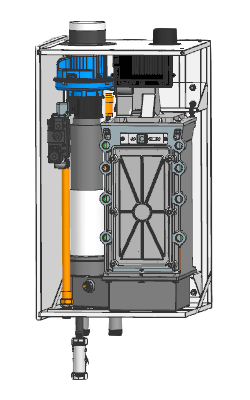joulu . 09, 2024 17:02 Back to list
Exploring the Techniques and Benefits of Iron Casting in Modern Manufacturing
Iron Casting A Timeless Craft
Iron casting is an ancient and essential process that has stood the test of time, playing a crucial role in numerous industries and applications. From the Revolutionary War cannons cast in the 1700s to modern-day automotive parts, iron casting has evolved yet remains integral to manufacturing and engineering.
The Basics of Iron Casting
At its core, iron casting involves melting iron and pouring it into molds to create specific shapes and sizes. The process begins with high-quality iron, which is heated in a furnace until it reaches a molten state. Once molten, the iron is carefully poured into a mold, which can be made of sand, metal, or other materials. After cooling, the iron solidifies, taking on the shape of the mold. This method allows for the creation of intricate designs and components that are often difficult or impossible to achieve through other manufacturing methods.
Types of Iron Used in Casting
Various forms of iron are utilized in casting, each with its unique properties and applications. The most common types include
1. Gray Iron Known for its excellent machinability and good wear resistance, gray iron is commonly used in manufacturing engine blocks, pipes, and machine bases.
2. Ductile Iron Also known as spheroidal graphite iron, ductile iron boasts enhanced strength and ductility compared to gray iron. This makes it suitable for applications requiring additional toughness, such as in the production of gears and automotive components.
3. White Iron This type of iron has a high carbon content, leading to a hard and brittle material. It's typically used in wear-resistant applications, such as grinding balls and liners.
iron casting

4. Malleable Iron Produced by heat-treating white iron, malleable iron has improved ductility and is commonly used in agricultural and industrial applications.
The Advantages of Iron Casting
One of the significant advantages of iron casting is its versatility. Iron can be molded into nearly any shape, allowing manufacturers to produce everything from small, intricate parts to large heavy-duty components. The casting process is also highly efficient, often reducing the number of secondary operations needed to finish a product. Additionally, the ability to recycle scrap metal makes iron casting an environmentally friendly option.
Applications Across Industries
Iron casting is utilized in a wide array of industries, showcasing its diverse applications. In the automotive sector, components such as engine blocks, transmission cases, and brake components rely on cast iron for strength and durability. The construction industry benefits from cast iron's robustness in the form of pipes, fittings, and structural elements. Furthermore, the machinery and tooling sectors produce various equipment, including machine bases, frames, and industrial tools that leverage the benefits of this time-honored process.
Innovation and Technology
While the principles of iron casting remain largely unchanged, advancements in technology have led to more efficient and precise casting methods. Modern manufacturing employs computer-aided design (CAD) software to enhance mold design, while improvements in foundry processes ensure better quality control and reduced waste. Additionally, innovations such as 3D printing are beginning to influence the casting industry, allowing for more complex and customized designs.
Conclusion
Iron casting is a foundational process in manufacturing that combines artistry with engineering precision. Its ability to create durable and high-quality products ensures its relevance in today’s fast-paced production environment. As industries continue to innovate and evolve, iron casting remains a testament to the timelessness of traditional craftsmanship and its indispensable role in modern technology. Whether in the form of a sturdy automotive part or a delicate decorative piece, the legacy of iron casting will undoubtedly continue to shape our world for generations to come.
-
Durable Centrifugally Cast Iron Water Main Pipe
NewsAug.11,2025
-
Centrifugally Cast Iron Water Main Pipes for Reliability
NewsAug.10,2025
-
High-Quality Centrifugally Cast Iron Water Main Pipes
NewsAug.09,2025
-
Durable Cast Iron Water Main Pipe & Drainage Solutions
NewsAug.08,2025
-
Buy Cast Iron Pipe: Premium Ductile Iron & Drain Solutions
NewsAug.07,2025
-
Durable Cast Iron Water Main Pipe | Buy Ductile Pipe
NewsAug.06,2025


